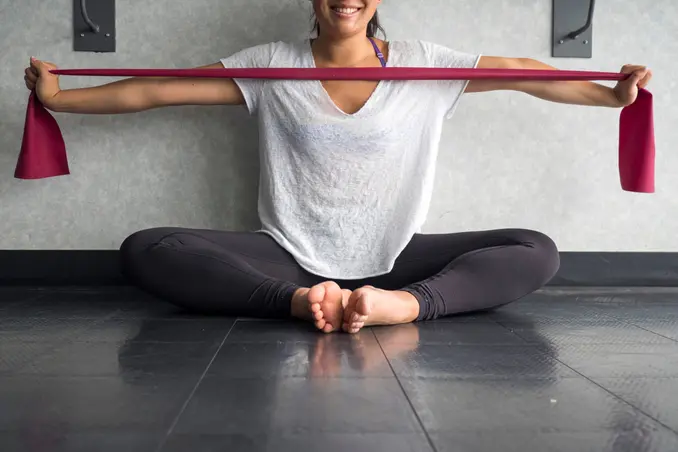Exercise for Recovery from Substance Use Disorders
Table of Contents
- Exercise for Recovery from Substance Use Disorders
- Addiction Recovery Needs Focus
- Exercise During Addiction Recovery Will Help You Get Into a Routine
- Further Reasons Why Exercise is Important to Your Recovery
- Physical and Mental Benefits: Exercise is Important to Your Recovery
- Look at Your Whole Lifestyle for Recovery Results
- Don’t Get Tunnel Vision in Sobriety
- Get Help Here if You or a Loved One Are Struggling!
Physical activity is essential to prevent and reduce the risks of many diseases and can help improve both your physical and mental health. Anxiety, stress, and feelings of depression can all be linked to a lack of physical activity. Read on to find out all the many reasons why exercise is important to your recovery.
Exercising regularly can help prevent many health issues; such as high blood pressure, coronary heart disease, diabetes, osteoporosis, colon cancer, and obesity. For everyone physical activity is important but exercise during addiction recovery is very important to keep your body and mind in shape to fight the temptations.
24 Hour Substance Abuse Hotline – Get Help Now!
(877) 633-0053
Addiction Recovery Needs Focus
When you enter treatment for your addiction, you must learn to focus on the things that are important. Set goals for recovery that place the focus on the steps you should take in achieving sobriety; don’t focus on things just to avoid relapse.
Do those sound the same to you? They aren’t. The difference is subtle. The first focuses on positive outcomes and the second focuses on avoiding failure.
When you choose to emphasize focusing on the positive rather than the negative, you will make a choice that significantly impacts your recovery. Its the same with exercise, choosing to exercise, even a little bit each day, can accentuate the positive and free your recovery from worries and doubts.
Regular Exercise Boosts Focus and Motivation
Regular physical activity and exercise will make you feel better, it will help your mind and body function on a higher level. Don’t ignore the physical and mental benefits of exercise, you don’t need a gym membership to get your daily dose of physical activity.
These benefits are free for the taking. Different exercises are best suited for different people. By finding out what your physical and mental goals are you will be able to decide on which exercise routine is best for you. It doesn’t matter how old you are, what your gender is, or where you are currently ‘at’ physically; exercise will benefit you!
Exercise During Addiction Recovery Will Help You Get Into a Routine
Put the physical benefits of exercise to the side, setting time aside throughout your week to dedicate to physical activity will do wonders. Having a structure to your day will help give you a sense of accomplishment. Getting motivated to work out throughout the week can be hard, but when you muster up that motivation do it you will feel great afterward.
When you leave the gym or wherever you decided to work out your body and mind are going to be extremely grateful, yeah you might be a bit sore but that’s a small price to pay for the benefits of exercise. Getting yourself into some type of routine will help you go through your day with less stress, stress can be very dangerous, especially in early recovery.
Further Reasons Why Exercise is Important to Your Recovery
Exercise during addiction recovery will help manage and lower the symptoms of depression, anxiety, and stress. Many of us addicts and alcoholics used our substances of choice to self medicate these mental health issues away. Now that you’re sober dealing with some of those emotions can be hard, use exercise as your new way to help lower the impact of those things.
Everyone has stress in their lives. Stress can really do some damage to your mind, studies have proven that exercise is a great way to counteract the negative effects of stress. Those endorphins that are released during exercise are natural stress fighters. Getting yourself into that exercise routine helps get your mind into a good place and keeps you from stressing out.
Physical and Mental Benefits: Exercise is Important to Your Recovery
Having a positive self-image is a great thing, you will be happier when you are happy with how you look. Obviously working out throughout the week your body will get into better physical shape. Your heart is going to thank you, exercising will help reduce your risk of a heart attack, your chances of having high blood pressure are going to plummet and chances are you will live a longer, happier life.
“Regular physical activity can reduce your risk of developing type 2 diabetes and metabolic syndrome. Metabolic syndrome is a condition in which you have some combination of too much fat around the waist, high blood pressure, low HDL cholesterol, high triglycerides, or high blood sugar. Research shows that lower rates of these conditions are seen with 120 to 150 minutes (2 hours to 2 hours and 30 minutes) a week of at least moderate-intensity aerobic activity. And the more physical activity you do, the lower your risk will be.”
According to the US National Library of Medicine, “Exercise improves mental health by reducing anxiety, depression, and negative mood and by improving self-esteem and cognitive function. Exercise has also been found to alleviate symptoms such as low self-esteem and social withdrawal.
Exercise is especially important in patients with schizophrenia since these patients are already vulnerable to obesity and also because of the additional risk of weight gain associated with antipsychotic treatment, especially with atypical antipsychotics.
Patients suffering from schizophrenia who participated in a 3-month physical conditioning program showed improvements in weight control and reported increased fitness levels, exercise tolerance, reduced blood pressure levels, increased perceived energy levels, and increased upper body and hand grip strength levels.”
Finding the Motivation to Exercise in Recovery Can Make a Big Difference
Hopefully, this is the motivation you need to get yourself out there and sweating. Get your body moving, and get your blood flowing it can change your life. Imagine if there was a magical drug that kept your stress down, and reduced the negative effects of depression, anxiety, and stress.
Now imagine that drug also gave your body a healthy boost of energy, a healthier heart, and made you happier, you would take that pill every day; wouldn’t you?
24 Hour Rehab Hotline – Get Help Now!
(877) 633-0053
Look at Your Whole Lifestyle for Recovery Results

From your physical health to your financial health, to the number of recovery-related activities you pursue, the need for a comprehensive plan of approach for self-care can help anyone but is certainly extra beneficial to those on the mend from substance misuse disorders. A key portion of getting started will be to assess the needs that you have from a perspective of basic necessities, as well as those activities (and expenses) that are not absolutely required but add a level of enjoyment to daily life that make being clean and sober more sustainable.
One example of this could be scheduling (and budgeting) a movie night with friends twice a month, to relieve the stress of the working week and provide a valuable chance to socialize with others that share the same commitments to both health and having fun! Other efforts can include monthly check-ins, with your sponsor, family, or other respected members of your sober support network, that go beyond the surface and look at how well you are setting the stage for long-term recovery goals.
Check in with yourself at least once a month to assess all aspects of your health, from mental to financial and more. Such a time will be a valuable tool for looking at current circumstances and confirming your goals for recovery are achieving the effects you prioritize and not losing momentum.
Don’t Get Tunnel Vision in Sobriety
You’ll get tunnel vision if you only focus on the avoidance of failure. Because you become so driven to avoid a negative outcome, you could fail to find the paths to positive results. For example, you might avoid parties because they can trigger a relapse. However, you could miss out on other chances to socialize and make new friends. You inadvertently isolate yourself.
Embrace a healthier outlook by directing your energy into focusing on positive outcomes. Your goals for recovery should not a static listing that sits on the fridge or even on the laptop without being regularly referred to. The main takeaway from our article should be to craft an evolving document that makes your goals for recovery a living, changing set of ideals to challenge and ultimately enhance your whole life.
If you’re struggling with your goals for recovery, or with sobriety itself, please don’t hesitate to reach out to the representatives at Find Addiction Rehabs. We have been through our own struggles and are ready to help assist you any time of day or night. Don’t ever give up on yourself, and call us now if needed.
Get Help Here if You or a Loved One Are Struggling!
If you or someone you love is suffering from alcohol or drug addiction and would like to learn about the residential programs, PHP programs, or other treatments we can assist with at Find Addiction Rehabs, call us at 1-(877) 633-0053 today.
Relapse doesn’t have to be part of your story, but it is part of the story for many suffering from alcohol or substance use disorders. Help is out there and just a phone call away, so please don’t hesitate to reach out to our dedicated team of recovery representatives now!
Anna M. joined Find Addiction Rehabs with extensive experience in the field of addiction treatment. As a former Nurse Practitioner in Miami, she found her passion for addiction treatment when a family member was lost to his disease. With each article and resource, she hopes to save other families from experiencing the anguish of a loved one’s passing due to drinking or drugs.




